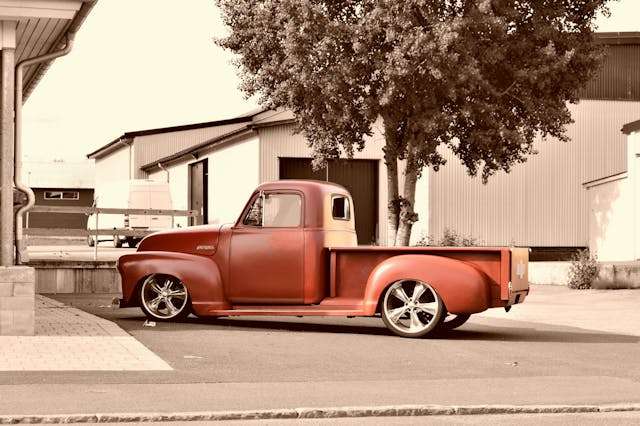
Welcome to our guide on navigating the world of used Chevrolet parts. Whether you’re restoring a classic Chevy or looking for cost-effective repairs on your daily driver, understanding how to inspect and evaluate used parts is crucial. This blog post will walk you through the essential steps to ensure you’re getting quality, compatible components for your vehicle.
We’ll cover five key areas: researching compatibility, assessing condition, verifying authenticity, considering part history, and evaluating price and value. By following these guidelines, you’ll be better equipped to make informed decisions when purchasing used Chevrolet parts. Let’s dive in and explore how to become a savvy buyer in the used auto parts market.
Research the part’s compatibility
Researching a used Chevrolet part’s compatibility is essential for proper fit and function. Begin by identifying your vehicle’s exact make, model, year, and trim level. Locate the part number you need from your old part, service manual, or online catalogs. Cross-reference this with the used part to ensure a match.
Be aware of potential mid-year changes or multiple options for the same component. Use online resources like Chevrolet’s parts website, auto parts retailers, or model-specific forums to verify compatibility. When in doubt, consult a Chevrolet dealership parts department or certified mechanic.
Remember, even slight mismatches can cause performance issues or safety concerns. Thorough research prevents costly mistakes and ensures you get the right part for your Chevy.
Assess the part’s condition
When evaluating a used Chevrolet part, conduct a thorough visual inspection. Look for signs of wear, damage, rust, or corrosion. Check for cracks, dents, or deformations that could affect performance or safety.
Test moving parts for smooth operation. Inspect seals, gaskets, and rubber components for deterioration. Consider the part’s age and typical lifespan for its type.
Clean the part if possible and use a flashlight to examine hard-to-see areas. For electrical components, check for corrosion or burnt wiring.
Ask the seller about the part’s history, including mileage and reason for removal. This context can help you make an informed decision.
A careful assessment now can prevent future problems and ensure you get a reliable part for your Chevy.
Verify authenticity and origin
When dealing with used Chevrolet parts, verifying authenticity and origin is crucial. Start by examining the part for official Chevrolet or GM logos and part numbers. Genuine used Chevrolet parts should have these identifiers intact.
Be cautious of counterfeits, especially for high-value components. Research common signs of fake parts for the specific item you’re considering. Reputable sellers of used Chevrolet parts, like BackToRoad Auto Parts, should offer a 30-day warranty on their components, providing peace of mind for your purchase.
Compare the part to images of genuine components from official Chevrolet catalogs or websites. Pay attention to details like material quality, color, and finish.
Consider the source of the used Chevrolet part. Parts from authorized dealerships or certified salvage yards, such as BacToRoad Auto Parts, are more likely to be genuine. If buying from individual sellers, ask for the vehicle’s history to ensure the part matches its claimed origin.
Remember, while aftermarket options exist, genuine used Chevrolet parts often provide better fit and reliability for your vehicle. At BacToRoad Auto Parts, we prioritize offering authentic used Chevrolet components to ensure the best performance and longevity for your car.
Consider the part’s history
When evaluating used Chevrolet parts, understanding their history is crucial. Ask the seller about the vehicle the part came from, including its mileage, age, and any accident history. This information can give you insight into the part’s wear and potential hidden damage.
Inquire about how the part was removed from the original vehicle. Properly removed parts are less likely to have been damaged during extraction. Also, ask about storage conditions, as improper storage can lead to deterioration.
Check if the part has undergone any previous repairs or modifications. While not necessarily a deal-breaker, alterations can affect performance and longevity.
If possible, request service records or documentation related to the part. This can provide valuable information about its maintenance history and any issues it may have had.
Remember, a well-documented history can help you make a more informed decision about the used Chevrolet part’s condition and reliability.
Evaluate the price and value
When evaluating used Chevrolet parts, compare prices across multiple sellers, including online marketplaces and local salvage yards. Consider the cost of new OEM parts as a benchmark. Factor in the part’s condition and expected remaining lifespan to determine if the price is justified.
Be aware of any warranties or return policies offered by the seller, as these can add value. Consider the potential cost savings against the risks of using a used part, including possible premature failure or incompatibility.
Don’t forget to factor in shipping costs for online purchases or the time and effort required to source the part locally. Sometimes, paying slightly more for convenience or reliability can be worthwhile in the long run.
As we’ve explored, buying used Chevrolet parts requires careful consideration and thorough evaluation. By following the steps outlined in this guide – from researching compatibility to assessing condition and value – you can navigate the used parts market with confidence. Remember, taking the time to properly inspect and evaluate used parts can save you money and headaches in the long run.
Whether you’re a DIY enthusiast or working with a mechanic, these tips will help you make informed decisions about used Chevrolet parts. Don’t hesitate to ask questions, seek expert advice when needed, and trust your judgment. With patience and diligence, you can find quality used parts that will keep your Chevy running smoothly for years to come.
Happy hunting, and may your Chevrolet always be in top form!